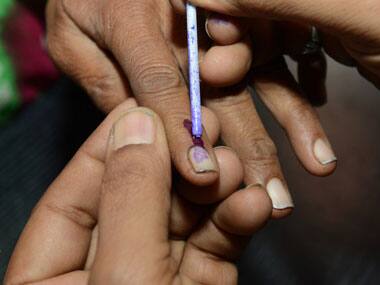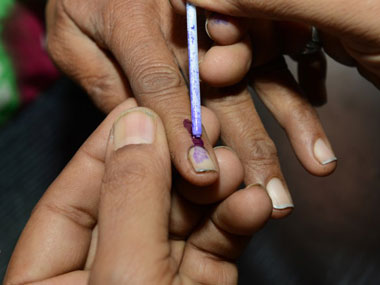The business of election news has just been dealt a huge shock. Especially since the blow has come just a few months before the Lok Sabha polls that are being hyped as one that will change the course of the country’s politics. A sting operation, conducted by a news channel, seems to suggest that C-voter and some other opinion polls cane be tempted to tweak their findings and represent a misleading picture of the country’s mood when it comes to polls. In a panel discussion with Karan Thapar on CNN IBN, the panelists discussed if placing a ban on opinion polls prior to the elections would be in the welfare of democracy. [caption id=“attachment_1411511” align=“alignleft” width=“380”]  Opinion polls make the voters think, if not influence them completely. Agencies.[/caption] SY Quraishi, former chief election commissioner said, said that they had been seeking a ban on such opinion polls for the past 17 years. He later clarified that while the basic idea of such polls were not problematic, the intent with which they are conducted prior to elections in the country is suspect, hence his disapproval. “After paid news became a reality in India, we had raised the pitch for ban… the election commission too conducts surveys but one has to consider the intent with which polls, surveys are conducted,” said Quraishi. Psephologist and AAP leader Yogendra Yadav admitted that the being a pollster himself, he found the C-voter incident ‘pretty damning’. “The opinion polling industry should be seriously worried. Have been in the business myself for very long, I used to brush aside these allegations. But now it seems there is a lot of truth in them,” said Yadav. Sociologist Dipankar Gupta, however, had an interesting addition. He suggested that the practice of opinion polling in India is dubious and immature. Unlike in the West, where people questioned in the survey, almost always say what is truly on their minds during opinion polls, in India people lie. “In India there is a tendency among people who participate in the polls to say one thing and do one thing. They only say what they think you want to hear,” said Gupta. Most of the panelists agreed that there is a need to have an independent regulator for these polls. “The days to trust media’s self regulation is over,” said Yadav. Both Gupta and Quraishi said that there was a need for an independent regulator. However, as Gupta pointed out, if indeed people don’t realise the importance to respond honestly in the surveys, how would a regulator help? Given how widely these polls are televised, it’s fair to consider that the polls do make a voter think, if not completely influence his thinking. “The SC said the people have a right to information. It also talked about disinformation. Nothing should come in the way of correct information,” said Quraishi. Banning the polls altogether is not a solution, agreed all. “Just because sections of media are paid doesn’t mean the entire media should be banned,” said Yadav. The challenge is how to tell information from ‘disinformation’ in this situation.
The business of election news has just been dealt a huge shock. Especially since the blow has come just a few months before the Lok Sabha polls that are being hyped as one that will change the course of the country’s politics
Advertisement
End of Article


)

)
)
)
)
)
)
)
)



